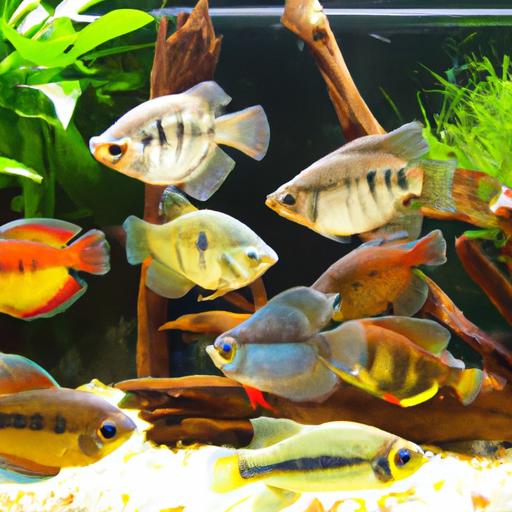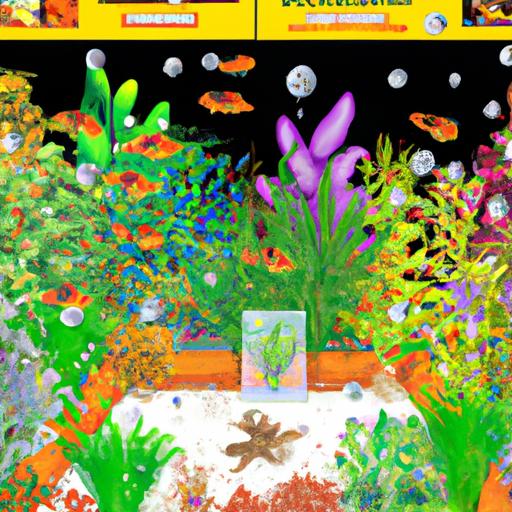
Caring for Exotic Varieties of Guppy Fish
Discover how to provide proper care for exotic varieties of guppy fish. Learn about water parameters, diet, tank setup, and more. Dive in now!
Introduction
Are you a fish lover looking to add a touch of exotic beauty to your aquarium? Look no further than exotic varieties of guppy fish! Guppy fish have long been popular as pets, and now, the fascination with these vibrant creatures has extended to their exotic counterparts. In this article, we will explore the world of caring for exotic varieties of guppy fish, unraveling the secrets to their proper care and maintenance.

Caring for Exotic Varieties of Guppy Fish
Exotic varieties of guppy fish come in a stunning array of colors, patterns, and fin types. From the electric blues to the fiery reds, these fish are sure to captivate any aquarium enthusiast. However, caring for these unique guppies requires a certain level of knowledge and attention. Let’s dive into the specific requirements and considerations for their care:
Water Parameters and Temperature
Maintaining optimal water parameters is crucial for the well-being of exotic guppy fish. These fish thrive in freshwater environments with a slightly alkaline pH level ranging from 7.0 to 7.8. It is essential to monitor and regulate the temperature of the water, aiming for a range between 75°F and 82°F (24°C and 28°C). By providing the right conditions, you can ensure that your exotic guppy fish flourish in their aquatic home.
Diet and Feeding Habits
A well-balanced diet is vital for the health and vibrancy of exotic guppy fish. These fish are omnivorous, so a combination of high-quality flakes, pellets, and live or frozen foods, such as brine shrimp or daphnia, should constitute their diet. Ensure that you feed them small portions multiple times a day, as they have small stomachs and benefit from frequent meals. By offering a diverse and nutritious menu, you can keep your exotic guppy fish in optimal condition.
Tank Size and Setup
Creating a suitable habitat is essential for the happiness of your exotic guppy fish. While they may be small, these fish require enough space to swim freely and explore. A minimum tank size of 10 gallons (38 liters) is recommended for a single pair or a small group of exotic guppies. It is also crucial to provide hiding spots, such as plants or decorations, to make them feel secure. Additionally, ensure that the tank is properly filtered and regularly maintained to maintain water quality.
Compatibility with Other Fish Species
Before introducing exotic guppy fish into a community tank, it is important to consider their compatibility with other fish species. While guppies, in general, are known for their peaceful nature, some exotic varieties may have specific temperaments or fin types that make them more vulnerable to aggression. Research the behavior and compatibility of different fish species to ensure a harmonious and stress-free environment for your exotic guppies.
Maintenance and Cleaning Routines
Maintaining a clean and well-maintained tank is crucial for the health of your exotic guppy fish. Regular water changes, typically around 25% to 30% of the tank volume every two weeks, help to remove accumulated waste and prevent the buildup of harmful substances. Clean the tank decorations and filter media periodically to avoid any potential health risks. By adhering to a consistent maintenance routine, you can provide a safe and healthy environment for your exotic guppy fish.
FAQ (Frequently Asked Questions)
How often should I feed my exotic guppy fish?
Exotic guppy fish should be fed small portions multiple times a day. Aim for two to three feedings, ensuring they consume the food within a few minutes. This feeding schedule helps meet their nutritional needs and prevents overfeeding.
What temperature should I maintain in the tank?
To ensure a comfortable environment for your exotic guppy fish, maintain the water temperature between 75°F and 82°F (24°C and 28°C). Use a reliable aquarium heater and thermometer to monitor and regulate the temperature consistently.
Can I keep different exotic guppy varieties together?
In general, it is safe to keep different exotic guppy varieties together. However, it is essential to consider their compatibility and temperaments. Avoid mixing aggressive fish with those known for their delicate fins, as this may lead to fin nipping and stress. Observe their behavior and make adjustments accordingly.
How frequently should I clean the tank?
Regular maintenance is crucial to maintain a healthy environment for your exotic guppy fish. Aim for water changes of 25% to 30% of the tank volume every two weeks. Additionally, clean tank decorations and filter media periodically to prevent the accumulation of waste and potential health risks.
What signs indicate that my exotic guppy fish may be sick?
It is important to monitor your exotic guppy fish for any signs of illness. Common indicators include loss of appetite, lethargy, abnormal swimming behavior, changes in coloration, visible lesions, or fin deterioration. If you notice any of these symptoms, it is advisable to consult a veterinarian with experience in aquatic medicine.
Conclusion
Caring for exotic varieties of guppy fish allows you to witness the beauty and charm of these unique aquatic creatures. By providing the right conditions, a balanced diet, and a harmonious environment, you can ensure the well-being and longevity of your exotic guppy fish. So, dive into the world of exotic guppies with confidence and embark on a rewarding journey of caring for these captivating fish. Remember, a little love and attention go a long way in ensuring their happiness and vibrant hues in your aquarium.































